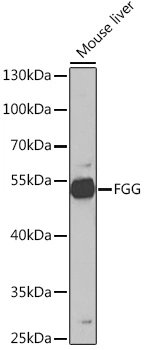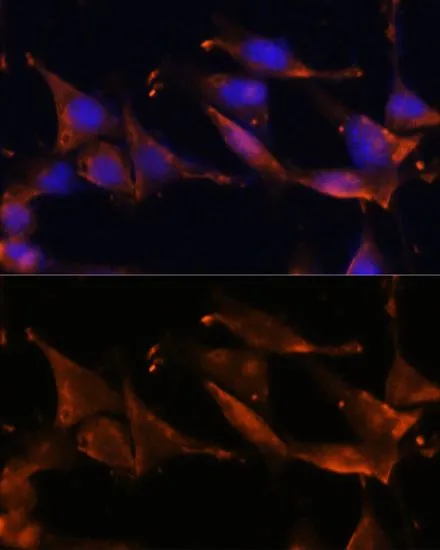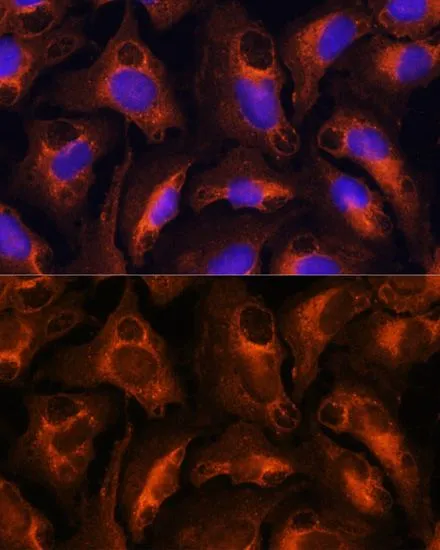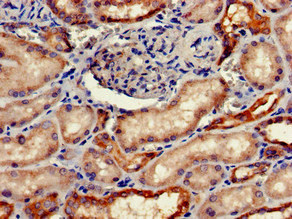
WB analysis of mouse liver tissue lysate using GTX54026 Fibrinogen gamma antibody. Dilution : 1:1000 Loading : 25microg per lane
Fibrinogen gamma antibody
GTX54026
ApplicationsImmunoFluorescence, Western Blot, ImmunoCytoChemistry
Product group Antibodies
TargetFGG
Overview
- SupplierGeneTex
- Product NameFibrinogen gamma antibody
- Delivery Days Customer7
- Application Supplier NoteWB: 1:500 - 1:2000. ICC/IF: 1:50 - 1:200. *Optimal dilutions/concentrations should be determined by the researcher.Not tested in other applications.
- ApplicationsImmunoFluorescence, Western Blot, ImmunoCytoChemistry
- CertificationResearch Use Only
- ClonalityPolyclonal
- ConjugateUnconjugated
- Gene ID2266
- Target nameFGG
- Target descriptionfibrinogen gamma chain
- Target synonymsfibrinogen gamma chain, fibrinogen, gamma polypeptide, testicular tissue protein Li 70
- HostRabbit
- IsotypeIgG
- Protein IDP02679
- Protein NameFibrinogen gamma chain
- Scientific DescriptionThe protein encoded by this gene is the gamma component of fibrinogen, a blood-borne glycoprotein comprised of three pairs of nonidentical polypeptide chains. Following vascular injury, fibrinogen is cleaved by thrombin to form fibrin which is the most abundant component of blood clots. In addition, various cleavage products of fibrinogen and fibrin regulate cell adhesion and spreading, display vasoconstrictor and chemotactic activities, and are mitogens for several cell types. Mutations in this gene lead to several disorders, including dysfibrinogenemia, hypofibrinogenemia and thrombophilia. Alternative splicing results in transcript variants encoding different isoforms. [provided by RefSeq, Aug 2015]
- Storage Instruction-20°C or -80°C,2°C to 8°C
- UNSPSC12352203




![ELISA analysis of antigen using GTX60498 Fibrinogen gamma antibody [5A6]. Red : Control antigen 100ng Purple : Antigen 10ng Green : Antigen 50ng Blue : Antigen 100ng](https://www.genetex.com/upload/website/prouct_img/normal/GTX60498/GTX60498_20170912_ELISA_w_23061123_381.webp)
![ELISA analysis of antigen using GTX60502 Fibrinogen gamma antibody [4H9]. Red : Control antigen 100ng Purple : Antigen 10ng Green : Antigen 50ng Blue : Antigen 100ng](https://www.genetex.com/upload/website/prouct_img/normal/GTX60502/GTX60502_20170912_ELISA_w_23061123_811.webp)

